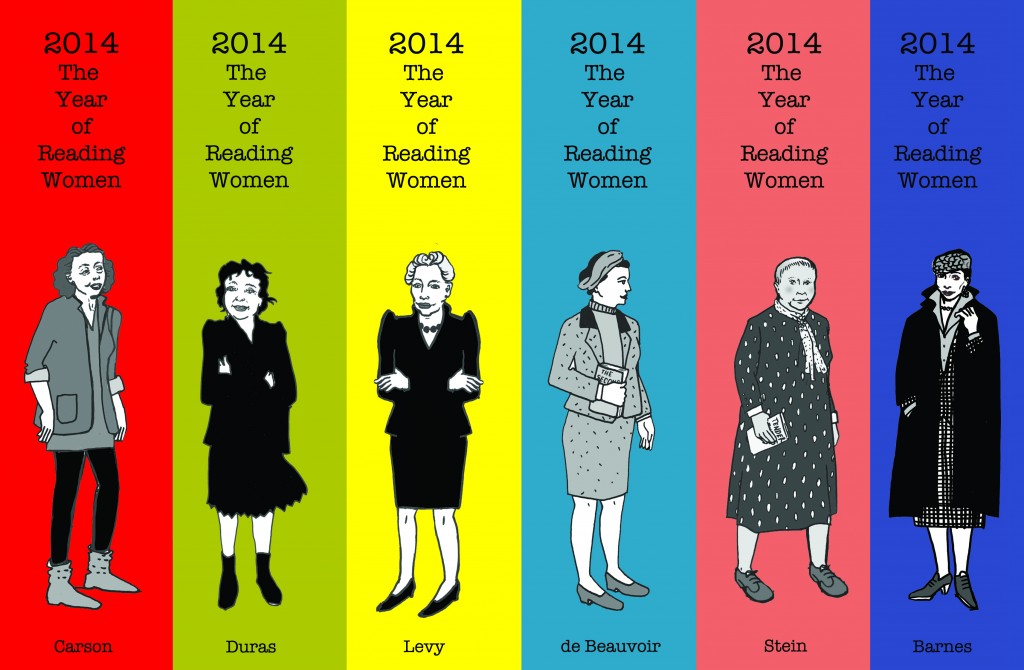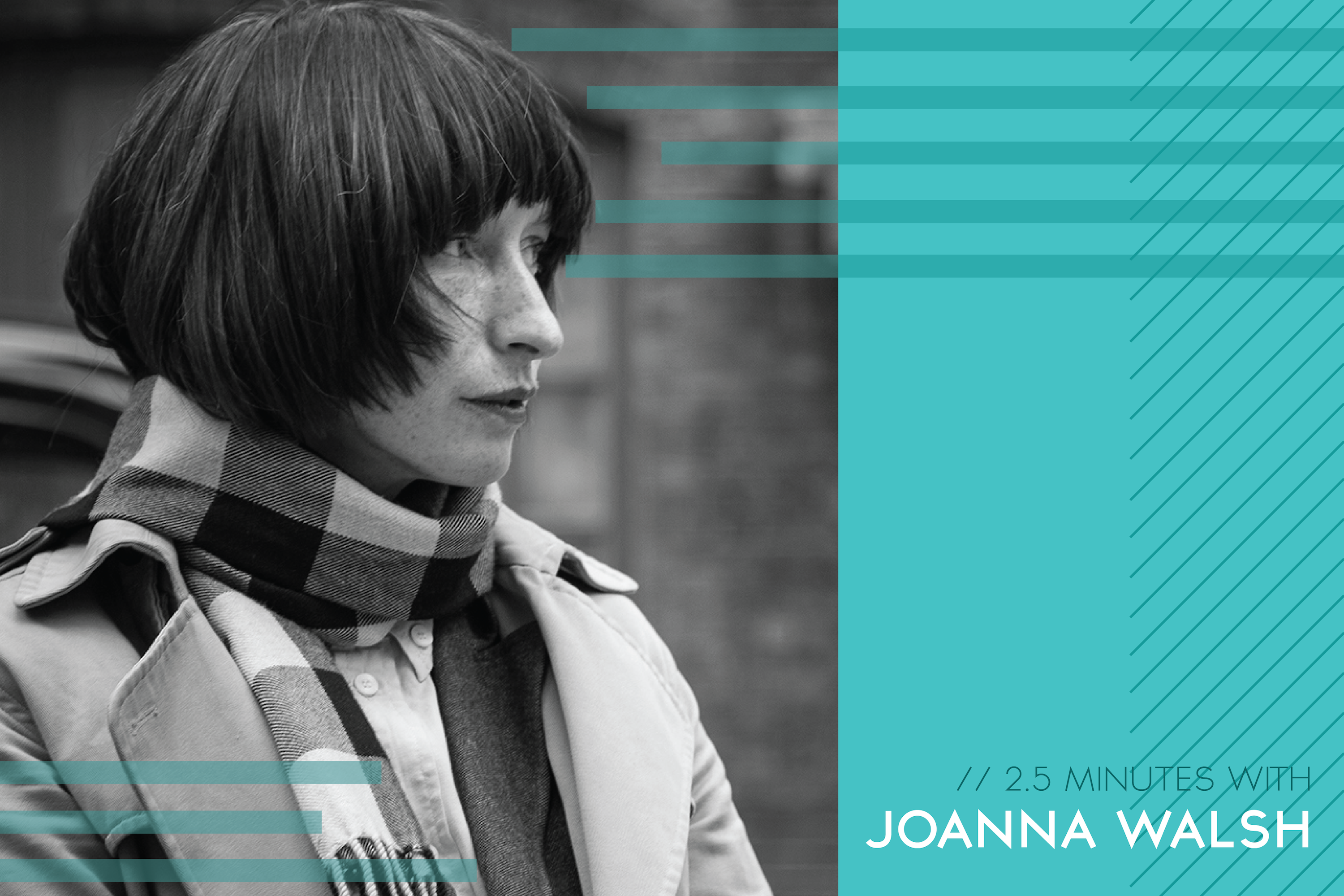As far as campaigns go, #readwomen2014 has been a long time coming. U.K.-based writer and illustrator Joanna Walsh launched it in early 2014 after being inspired by two male journalists’ – Jonathan Gibbs and Matthew Jakubowski – commitment to read only female authors. As VIDA documented for 2013, there has been progress in gender equity in publishing, but the general teeter-totter still dips toward the XY majority. Walsh’s campaign, Gibbs’ and Jakubowski’s personal initiatives and our mission at The Riveter will hopefully make for a better 2014.
When she’s not changing the world one hashtag at a time, Walsh is illustrating bookmarks and portraits of female authors, launching an online bookstore and promoting her published work, Fractals (3:AM Press), a collection of short stories that intuitively observes the way women see themselves (“The man with the steak looks at my legs which gives me permission to look at the message he is typing into his mobile phone. I cannot see it as the glass reflects. I feel cheated.”). Soon to come is Hotel (Bloomsbury, 2015), a memoir and study of the alienation of hotel lives.
It goes without saying that we are adding Walsh to our #readwomen2014 list.
 Brighten up your books with Walsh’s printable portraits of female authors.
Brighten up your books with Walsh’s printable portraits of female authors.
ON THE POWER OF THE HASHTAG
Walsh wrote on the genesis of #readwomen2014 for The Guardian in late January and summed up the variety of ways the hashtag has been used: “as a personal incentive; a rallying cry; a celebration of recent achievements.”
The joy of a hashtag is that people can interpret it how they like. They can use it to introduce each other to new books and writing. There are lots of tweets about reading the latest publications, or prizewinners – Rachel Kushner, Eimear McBride, etc. – which shows how important the presence of women on prize shortlists is.
ON READING AND MORALS
Daniel Pritchard at Critical Flame inferred that reading more writing by women was a “moral issue” in this Guardian post, and Walsh agrees, although she says it’s up to those in charge.
There would be something wrong with a culture where half of its population was unwilling to look at works by the other half, but writing is difficult to pin down morally… Perhaps reading thoughtfully is a moral issue, especially for those whose opinions will affect others: editors, teachers, critics.
ON CURMUDGEONS AND #READWOMEN2014
For Walsh, those who reject the campaign either misinterpret it as being too radical or haven’t yet noticed their bookshelves are cluttered with Johns and Davids and Ernests. The idea is to simply expand one’s reading list, not cut men out completely.
I’ve found many people who think they don’t “need” to look at their reading habits are surprised to find an imbalance they hadn’t suspected.
ON WHAT’S ON HER BEDSTAND
Walsh’s bedstand is the bedstand we have been searching a lifetime for, as she claims it currently holds 30 books. She’s got her reading fingers dipped in many pools, including: The Notebooks of Malte Laurids Brigge by Rainer Maria Rilke; Hour of the Star by Clarice Lispector; and Poor But Sexy by Agata Pyzik, among others.
ON SEPARATING PASSION AND PLAY
I do yoga. If I don’t do it for a few weeks, I start to seize up. I have a dog… But on the whole I’m very happy to be swallowed up.
ON THE POWER OF THE HASHTAG, PART II
I see my campaign as part of the zeitgeist – after starting it I discovered that (of course!) neither I, nor Gibbs and Jakubowski, were the first to focus on women’s writing, and that there were other campaigns going on all over the world, in India, Australia, South Asia. I hope that a variety of campaigns using different methods will nibble away at different areas of attrition and, together, we’ll be able to achieve something.
//
Portrait of Joanna Walsh taken by Wayne Thomas.




